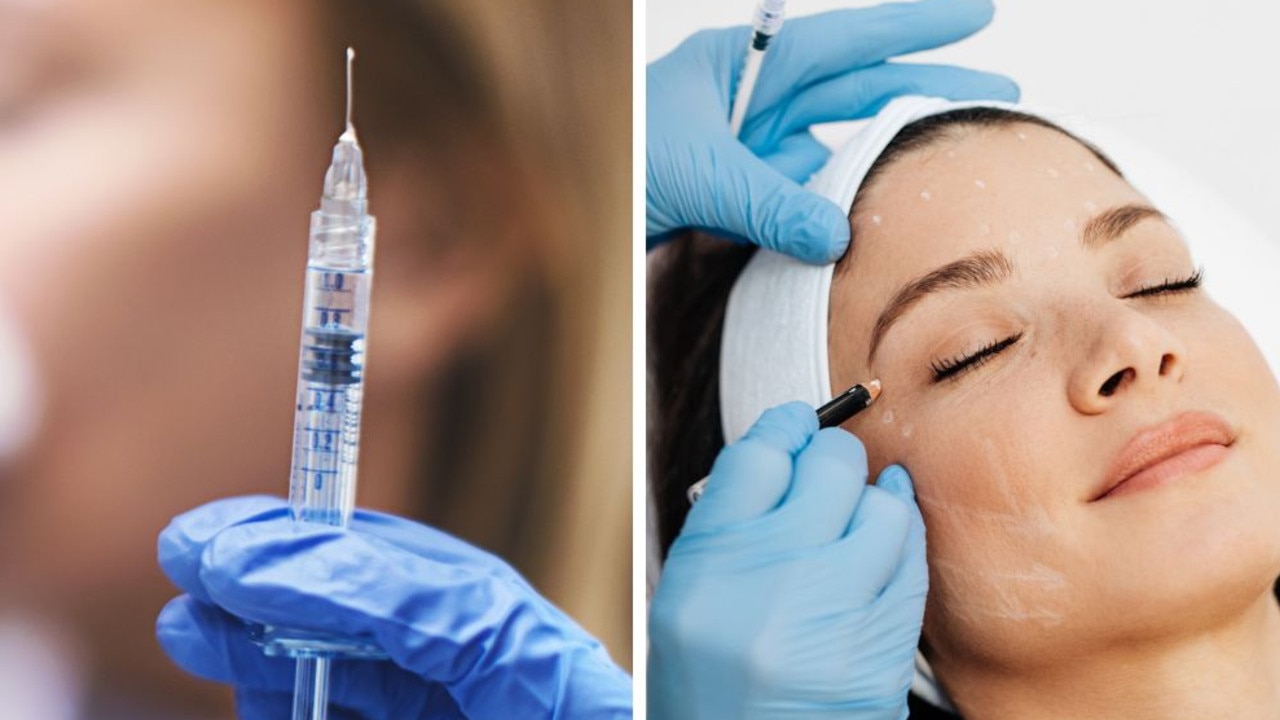Dark side of beauty: Emma Novotny reveals her ‘hell’ after having breast implant surgery
EMMA spent $10,000 on breast implants after being teased about her flat chest. Three months later odd things started happening to her.
WHEN Emma Novotny went through with breast implant surgery in 2012, the decision wasn’t something she’d taken lightly.
The then 21-year-old from Orange in NSW had suffered a lifetime of self-esteem issues, which had stemmed from her breast size as a teenager.
“I was like a triple A-cup and I’d get called surfboard at school,” Ms Novotny, who is now 26, told news.com.au.
“My younger sister developed breasts at 13 and she was bigger than me. I thought implants might make me feel better and give me confidence, but following the surgery that feeling never happened.”
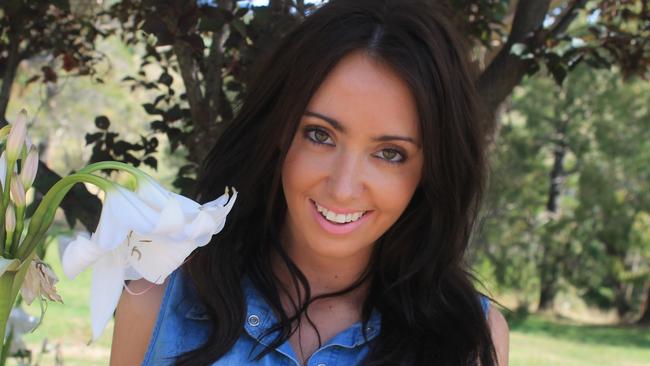
Before going under the knife, Ms Novotny did months of research about the pros and cons of breast augmentation.
While she had heard of horror stories including leaks and ruptures, a growing number of girls in her social circle were getting implants — and so she decided to proceed with the surgery.
“In 2012, everyone was getting the implants I was looking at,” Ms Novotny explained of her implants.
“My parents didn’t support my decision, but I was living in Brisbane at the time and they were in Orange, but I was very low and very depressed. They couldn’t bear seeing me the way I was, and in my mind these implants would change everything, get me a boyfriend and feel more loved.”

Ms Novotny decided to get the $10,000 surgery in December 2012, increasing to a D-cup.
Following advice, she went for the recommended brand known as Silimed, which is a textured polyurethane silicone coated implant that has since been banned by the Therapeutic Goods Administration.
According to the government website, the implants were suspended by the TGA three years after Ms Novotny had her surgery, following an audit of the company’s manufacturing procedures. According to a statement released at the time of suspension, Silimed was unable to demonstrate that its devices met the necessary requirements for safety and quality.
“I felt quite good after surgery, and within a month I was out and about and had confidence for a while,” Ms Novotny said.
“But after three months, I started to get symptoms something was wrong.”
Ms Novotny said she started to develop food intolerances that she hadn’t experienced previously. Soon after, she started suffering from migraines, sinus infections, night sweats and monthly bouts of severe tonsillitis.
“I went to a local GP and also got diagnosed with IBS (Irritable Bowel Syndrome) about four months after my surgery,” she said.

“I didn’t connect what was going on to the implants, and even if I did at the time, I would’ve put it in the back of my mind because I wanted them so much.
“But things started to get really bad in 2015, about three years after my surgery.
“It was absolute hell.”
Ms Novotny said her body started to shut down in ways that had an impact on her everyday life.
“I had no menstrual system for some time, I got eczema and swollen lymph nodes,” she said.
“I was doing bodybuilding competitions, but got to a point where I couldn’t even lift weights. In 2016, that’s when I started questioning how my body was interacting with my implants.”
At first, doctors dismissed Ms Novotny query about whether the implants could be causing complications.
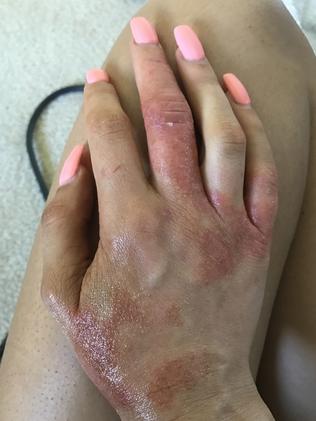

“I got tests for all kinds of things like heavy metal and blood tests,” she said.
“My body was attacking itself, I had eczema all over my hands, there was abnormal mercury levels in my body. There were days I couldn’t get out of bed — I was in crippling pain. It was causing me to get deeper depression because all these things were happening around me and I couldn’t participate.
“I became someone I didn’t recognise, and I tried to take my own life because of it. From the outside, I probably looked fine to people, but I felt like I was going crazy.”
Even though her implants did not rupture, Ms Novotny believes the silicone and other toxins were slowly being released by tiny holes in her implant, poisoning her and causing what has been coined “breast implant illness” or Bii.
While the medical board doesn’t officially recognise Bii as a scientifically proven illness, Ms Novotny has joined the global movement to warn women about the dangers of implants.

Earlier this month, Perth fashion model Ricci Jess explained how her breast augmentation led to what she believes was a decade of illness and suffering caused by the implants.
Since their removal six months ago, Ms Jess says she’s now free of medication and pain.
“This is not about the surgeons but about the implants. I don’t think any of them are safe,” Ms Jess told PerthNow.
“Women definitely need to educate themselves about all the risks before they consider getting any type of implants.”
Ms Jess started developing health complications four years after having Mentor implants, described as “highly textured cohesive silicone gel”. Many symptoms were “non-specific” such as chronic fatigue, anxiety, nerve pain and insomnia.
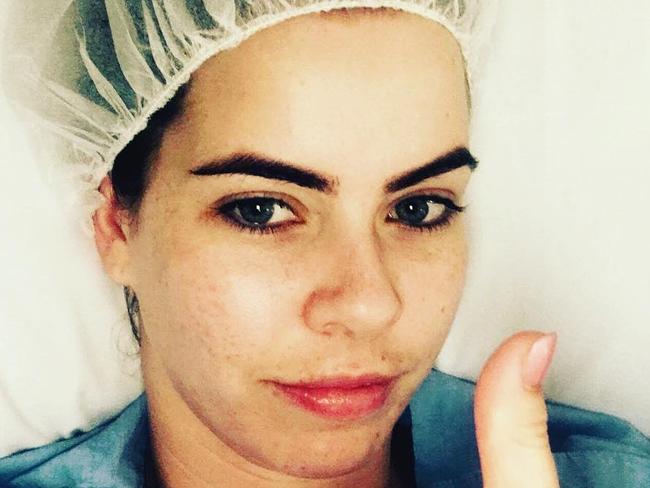
Her health deteriorated until she was eventually diagnosed with capsular contracture where internal scar tissue tightens around the breast implant, contracting it until it becomes misshapen and hard.
Ms Jess’s right breast implant was visibly protruding and she was in great pain. It was only then that she began suspecting she had Bii.
“For 14 years my body was trying to fight the toxins but once the silicone built up too much my body eventually gave up and I ended up with adrenal fatigue and failure,” she said.
Sydney resident Simone McKenzie Slaven said she suffered eight years of symptoms because of her implants, including fatigue, sinus infections, dry skin, headaches, food intolerances, allergies and fevers.
Speaking to news.com.au, it wasn’t until the mum-of-three discovered this list of symptoms on a website about Bii that she concluded her implants most likely led to the profound decline in her health.
I remember being curled up on the kitchen floor, crying in agony with my three children standing over me not knowing what to do. I didn’t care about living because I was barely existing,” she said.
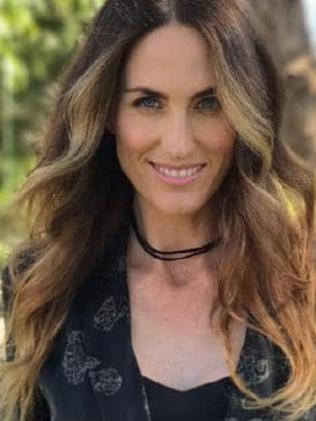
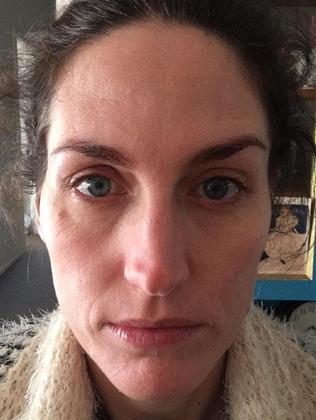
Ms McKenzie Slaven’s health deteriorated to the point where she was forced to quit work as a retail assistant and part-time model and become a virtual recluse.
“The neurologist had no ideas for me. The cardiologist said my heart was fine. The ER doctors thought I was crazy. The pain got so bad I would crawl down the hallway in the morning to take my medication and wait for it to start working so I could stand up,” she said.
Eventually, she stumbled across a Facebook group of more than 37,000 women worldwide who attributed their autoimmune and systemic issues to having breast implants.

“When I found the website and Facebook page, I felt like I’d found 20,000 people [including Hugh Hefner’s wife Crystal Hefner] who validated my concerns,” she said.
Since having her implants removed, Ms Novotny said she hopes to get back to a normal life without pain, medication or avoidable health complications.
“While I do regret the implants, I had to go through this journey to be who I am today,” she said.
“This has transformed me as a person. I love my body how it is. I love my boobs now. They are small, there are scars, but they will fade over time.
“But I feel alive ... and I did’t want implants to take another second of my life.”
In a statement to news.com.au, Australasian College of Cosmetic Surgery president Dr Ron Bezic said there was no proof that the symptoms experienced by Ms Novotny, Ms McKenzie Slaven or Ms Jess are related to breast implants.
“Long-term studies have shown that symptoms such as chronic fatigue, eczema, migraines, food intolerances, depression and allergies are no more likely in individuals with breast implants, than those without implants,” Dr Bezic said.
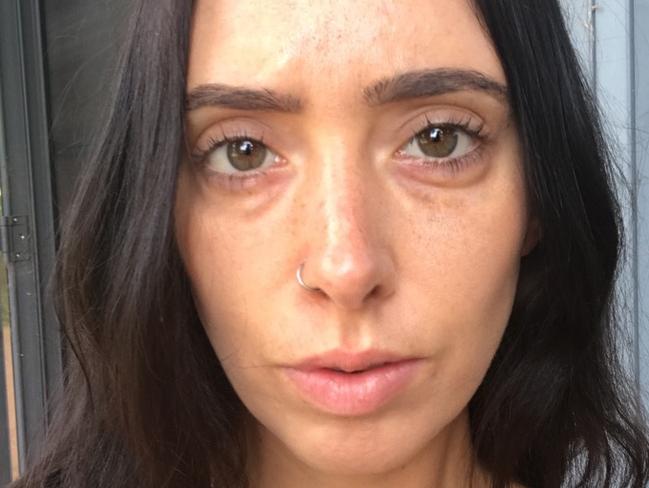
“It has been established that women with such symptoms who do have breast implants, and have them removed, are no more likely to get better than those who keep their implants. “Because these symptoms are unfortunately quite common and because many more women now have breast implants, there will inevitably be more women with implants who have the symptoms but this does not mean that implants are the cause.
“Anecdote is no substitute for scientific evidence. All patients with these symptoms are vulnerable and they should ensure that information given to them is based on proper evidence so they are not misled by individuals who may have ulterior motives, financial or otherwise.”
Dr Bezic said any women seeking breast augmentation should ensure their surgeon is a Fellow of the Australasian College of Cosmetic Surgery.
“ACCS Fellows must undergo up to 12 years of medical and specialist cosmetic surgery training, making them the best equipped in their field to perform these types of procedures,” he said.
vanessa.brown@news.com.au




